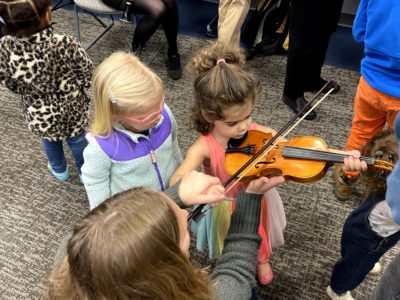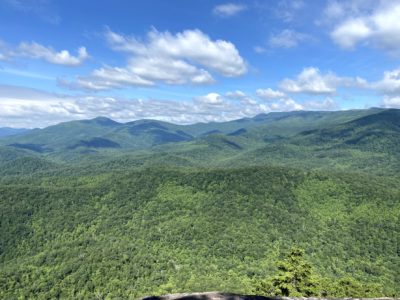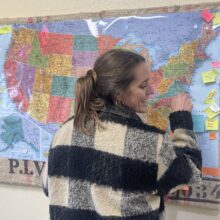|
|
‘My last touch point with Marshall above water’
On Wednesday, Sept. 26, the Partnership for Appalachian Girls Education (PAGE), took an afterschool field trip to the Marshall Library native garden. PAGE’s mission is to educate and empower girls so they can become leaders in a new Appalachia, and the students were working on a scavenger hunt for younger library goers.
It started raining, and there had been talks of Hurricane Helene, so Maia Surdam, PAGE’s program director who lives in downtown Marshall, and new Executive Director Rebecca Stephens went to the office and put some items onto higher shelves just in case.
The next day, Surdam heard her landlord in the hallway talking with neighbors. He said there was an evacuation order — it wasn’t mandatory, but it was highly encouraged. She thought he was joking until he started to talk through scenarios on how to get to higher ground if she were to stay.
Earlier that week, there was a board meeting welcoming Stephens as the organizations new executive director. Emily McGinty, PAGE board chair, said it was business as usual.
A conversation with PAGE a week before Helene

McGinty touched base with Surdam and Stephens on Wednesday, and she was in Buncombe County when businesses started to close Thursday. She thought she may need to head back to Madison County because some roads may flood.
On her way in, she stopped at Ponder’s Auto to talk about her upcoming yearly inspection appointment. Workers were moving cars, and they had heard what she had — they may see some flooding. Talking with the folks at the auto shop on Thursday, McGinty said, “That was my last touch point with Marshall above water.”
We met with these three leaders — Stephens, Surdam, and McGinty of PAGE — at Madison Middle School exactly two weeks after Hurricane Helene flooded the French Broad River that runs along downtown Marshall. On Friday, Sept. 27, the river crested at 20.08 ft, according to the National Oceanic and Atmospheric Administration. The PAGE office flooded, along with the entirety of downtown.

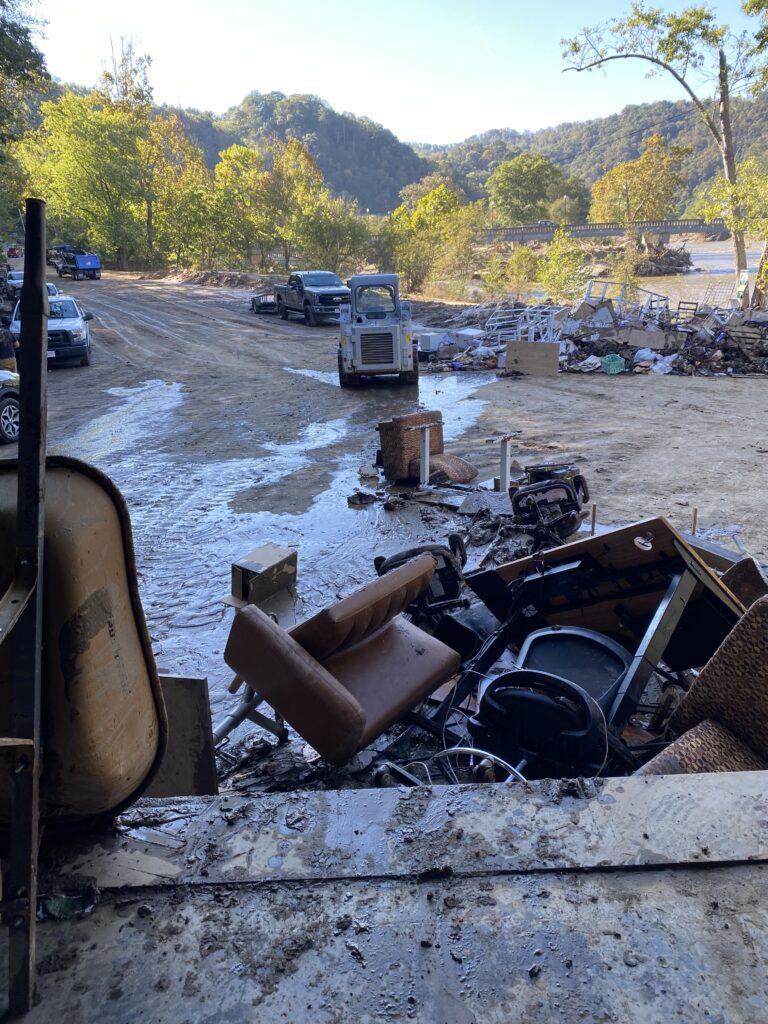

Shifting from crisis to recovery
Right after the storm, PAGE leadership focused on locating their students. They took to messaging in all the ways they could — using Instagram, calling, home visits, and more. Connectivity still remains an issue for residents of Madison County.
Once they located students, the focus shifted to assessing their needs for care packages, transportation, and individual access to internet. McGinty said in the aftermath of Helene, “Everyone (was) in a vortex,” and that you would have to go down the road 15 minutes to know what was actually going on.
“It’s been hectic,” said Maria McDaris, a PAGE student and senior taking nursing classes at Asheville-Buncombe Technical Community College. “I’ve been volunteering, helping out, checking in on everyone that I couldn’t get a hold of because I had no power for about three and a half days.”
Clean up and recovery in Madison County has been limited to adults because of safety issues, but McDaris got to work distributing supplies at her church, Bull Creek Baptist. She has been involved in PAGE for five years and described it as her second family.
“I can go to them, and I know that I’ll have support, and they’re always doing something for the other girls,” McDaris said.
Another PAGE student, Aubrey VanBumble, was able to volunteer at the animal shelter and at Nanostead, the information hub for downtown relief. She is a junior at Madison Early College High School and echoed many of McDaris’ sentiments about the PAGE community.
“Everyone’s always willing to help you out in any way, whether that’s through resources or just someone to talk to,” she said.
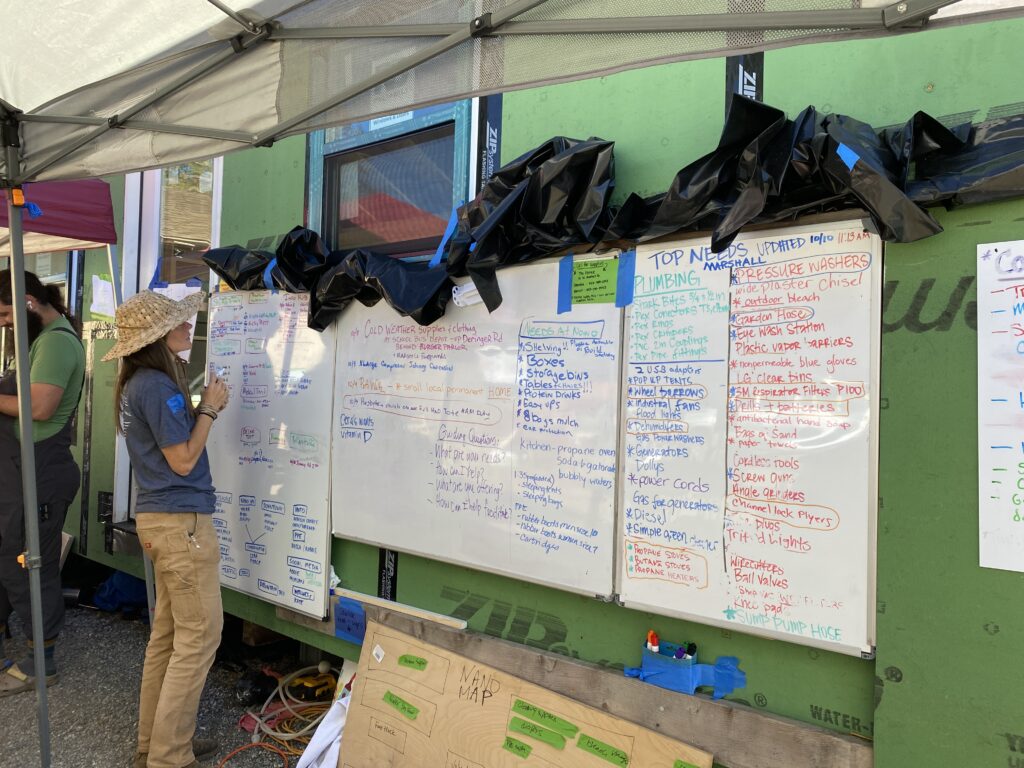
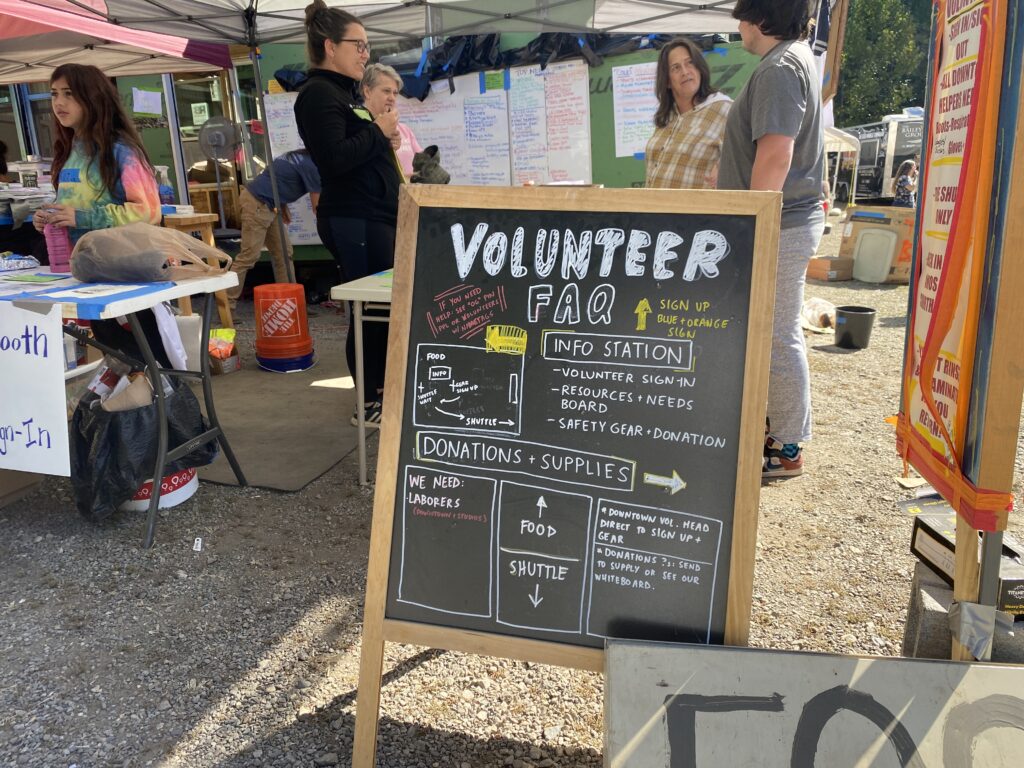
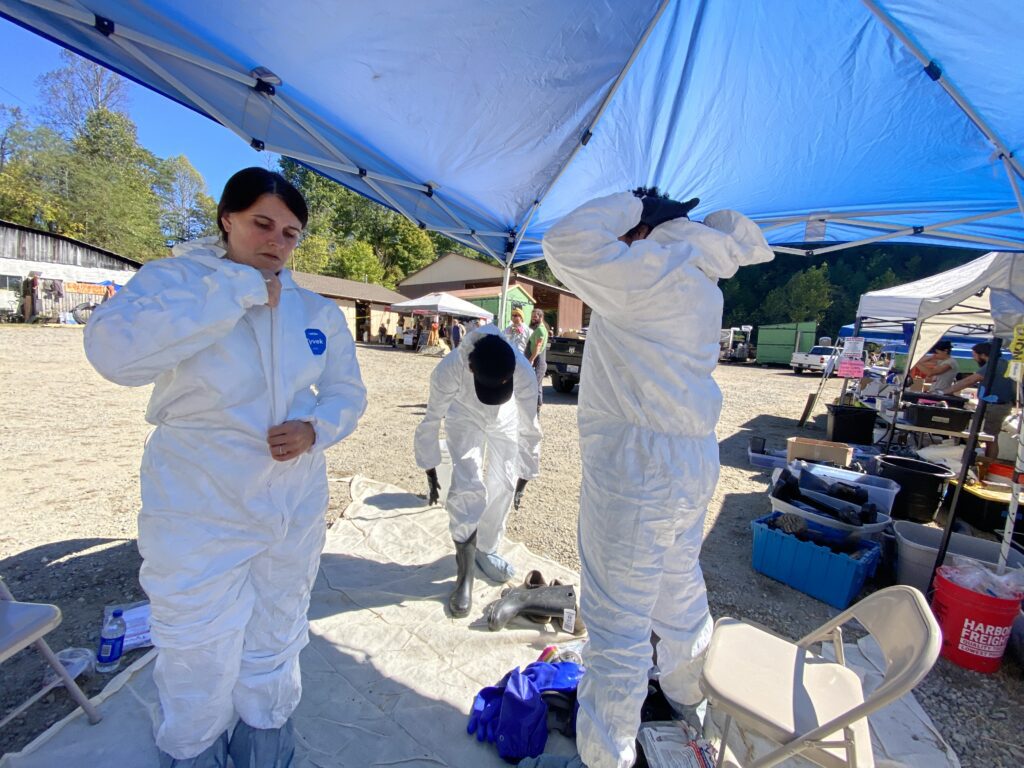
While recovery efforts continue for the buildings and businesses of Marshall, and the connectivity and infrastructure issues are addressed for the region, Madison County Schools reopened Wednesday, Oct. 16 on a two-hour delay.
Putting existing programs to work
Over the last few years, said Surdam, PAGE has developed deeper relationships with students and their families due to the impact of COVID.
As an organization, they have also focused efforts this past year on the pilot program Mobile PAGE, which brings their offerings beyond the borders of Madison County and engages with partners serving communities across the region.
“It does feel like we’re a stronger organization now and more equipped to deal with (an) emergency or a breakdown in the normal, that we together can figure out how to creatively solve some of these problems related to the storm.”
Maia Surdam, program director at Partnership for Appalachian Girls
PAGE knows it is uniquely positioned to support students in their program because of its work prior to the storm. Care packages will be the first touch point in this process to engage after Helene.
Isolation from the storm may bring memories of the pandemic, so PAGE is utilizing its oral history and storytelling program to help students process the event.
Included in the care packages, along with food and hygiene items, will be learning resources like STEM kits, books, and recipes. They are also looking at prompts students can answer via their phones. The images and entries would be collected to map individual experiences and shared with all students as a joint story on the storm.
“I think that anytime there’s some kind of massive devastating loss in the community, it can be really hard to know how to cope with that,” Surdam said. “Hopefully that’s something that’s a space that we can offer, and whether that’s using arts or storytelling or just community, as a way to process and cope and talk about what happened.” I hope that’s something that we can do in the short term.”
Mobile PAGE began a relationship with the Delta House in Asheville last year via their oral history project. Delta House runs as an afterschool program in line with Asheville City Schools and is currently inoperable due to water issues. PAGE reached out and will be making care packages for students there as well.
PAGE is planning to assemble and distribute 93 care packages and are coordinating to get 22 additional care packages to other organizations. There will be an in-person meeting for all PAGE students on Oct. 23, and care packages will be distributed or delivered around then.
With the work put in before the storm with partners in and outside the county, McGinty said it has “cast a light on PAGE as a place and a program that is literally designed to have additional capacity and care to share with adolescent folks, in particular adolescent women.”
PAGE is continuing to evolve as the situation in Madison County moves from crisis to recovery. They are able to share energy, attention, and resources with the larger PAGE ecosystem, said Stephens.
“We’re in a unique position to be able to share and help more,” said Stephens.
Recommended reading
